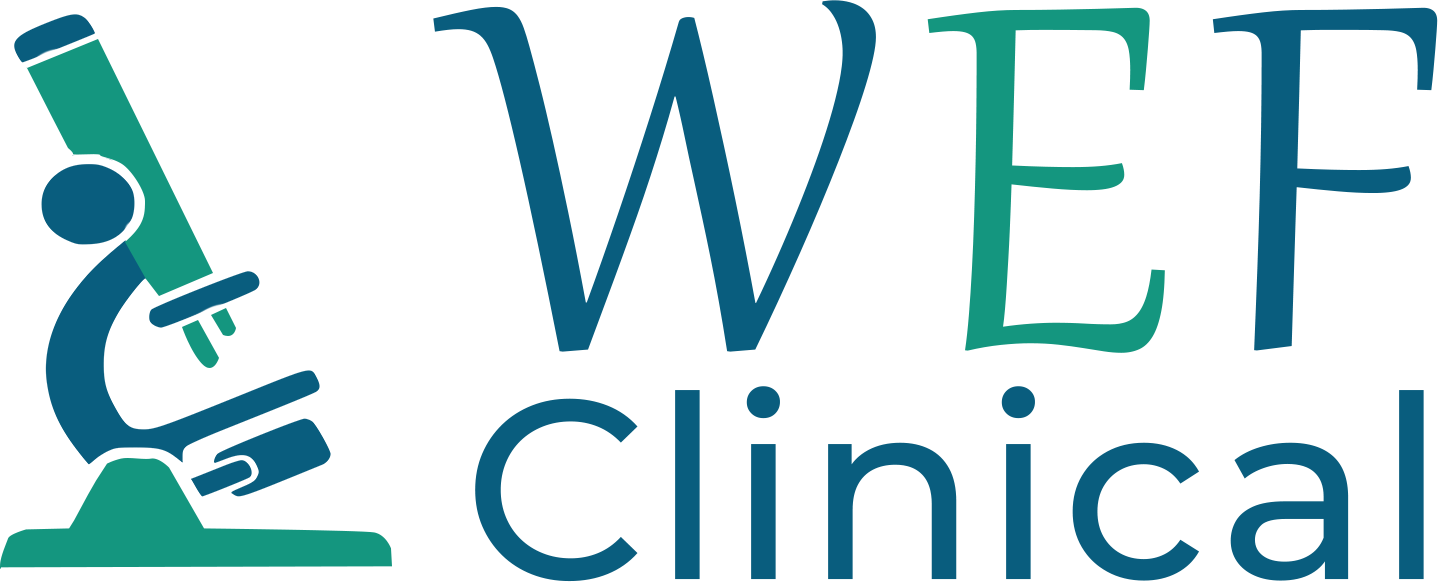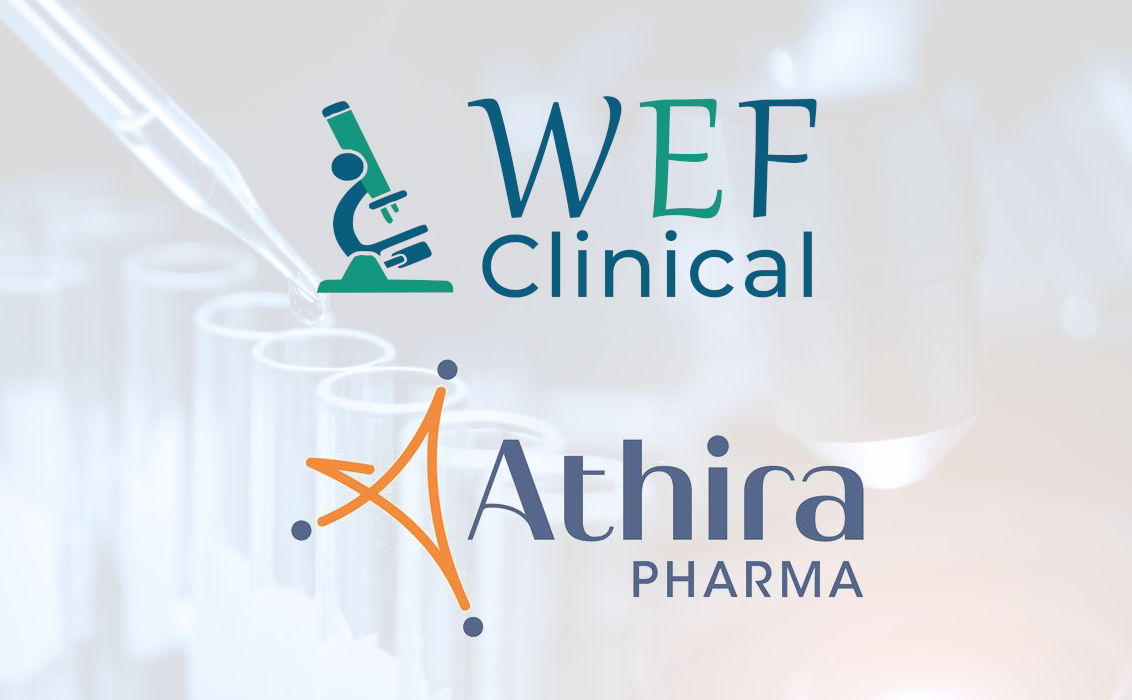WEF Clinical’s Collaboration with Athira Pharma in Advancing ALS Drug ATH-1105
Amyotrophic Lateral Sclerosis (ALS) is a devastating neurodegenerative disease that progressively affects motor neurons, leading to muscle weakness, paralysis, and ultimately, death. The search for effective treatments for ALS has been a long and challenging journey for the medical community. However, recent advancements in drug development have brought new hope to patients and their families. One of the most promising developments in this field is Athira Pharma’s ALS drug, ATH-1105, which is currently in the IND-enabling stage. WEF Clinical has played a crucial role in advancing this drug, working closely with Athira Pharma to ensure that ATH-1105 progresses through the clinical trial stages with the highest scientific rigour and patient safety standards.
The Significance of ATH-1105 in ALS Treatment
ATH-1105 represents a significant breakthrough in ALS treatment. As a small molecule designed to target and modulate specific pathways involved in neurodegeneration, ATH-1105 has the potential to slow down or even halt the progression of ALS. This drug is part of Athira Pharma’s broader strategy to develop therapies that can restore neural health and function, offering new hope to patients with neurodegenerative diseases.
The journey from discovery to clinical application is a complex one, particularly for a drug aimed at treating a condition as challenging as ALS. Each stage of development requires meticulous planning, rigorous testing, and collaboration between various stakeholders. This is where WEF Clinical has made a substantial impact, leveraging its extensive expertise in clinical research to support Athira Pharma in advancing ATH-1105 through the critical stages of drug development.
WEF Clinical’s Role in the IND-Enabling Stage
The Investigational New Drug (IND)-enabling stage is a critical phase in drug development. During this stage, the primary goal is to gather the necessary preclinical data to support the safety and efficacy of the drug, ultimately leading to the submission of an IND application to regulatory authorities. The IND application is a pivotal step, as it allows the drug to proceed to clinical trials in humans.
WEF Clinical’s involvement in the IND-enabling stage of ATH-1105 has been instrumental in ensuring that the drug meets all regulatory requirements and is well-positioned for success in subsequent clinical trials. The WEF Clinical team worked closely with Athira Pharma to design and implement a comprehensive IND-enabling program, which included a series of preclinical studies aimed at evaluating the safety, pharmacokinetics, and pharmacodynamics of ATH-1105.
1. Preclinical Study Design and Execution
One of the key contributions of WEF Clinical was in the design and execution of preclinical studies. The team at WEF Clinical brought their deep understanding of ALS pathology and drug development to the table, helping to design studies that would yield the most informative and relevant data. These studies included in vitro and in vivo models that closely mimic the disease processes seen in ALS patients.
The WEF Clinical team ensured that the preclinical studies were conducted to the highest standards of scientific integrity. This involved selecting appropriate animal models, optimizing dosing regimens, and employing advanced analytical techniques to assess the effects of ATH-1105 on neural health and function. The data generated from these studies provided critical insights into the drug’s mechanism of action, as well as its potential therapeutic benefits.
2. Regulatory Strategy and Compliance
Navigating the regulatory landscape is one of the most challenging aspects of drug development. WEF Clinical’s regulatory affairs experts played a crucial role in developing a robust regulatory strategy for ATH-1105. The team worked closely with Athira Pharma to ensure that all preclinical studies were designed and conducted in compliance with regulatory guidelines, paving the way for a successful IND submission.
In addition to ensuring compliance with existing regulations, WEF Clinical also provided strategic advice on how to address potential regulatory challenges. This included identifying potential safety concerns, proposing additional studies to address these concerns, and preparing comprehensive documentation to support the IND application. The goal was to present a strong, well-supported case to regulatory authorities, thereby maximizing the likelihood of approval to proceed to clinical trials.
3. Data Management and Analysis
Accurate and comprehensive data management is essential for the success of any drug development program. WEF Clinical’s data management team implemented a robust system for collecting, storing, and analyzing the vast amounts of data generated during the IND-enabling stage. This system was designed to ensure data integrity, facilitate real-time analysis, and provide clear and actionable insights to the research team.
The data generated from the preclinical studies of ATH-1105 were carefully analyzed to assess the drug’s safety profile, determine optimal dosing strategies, and identify potential efficacy biomarkers. These analyses were critical in shaping the design of future clinical trials and in supporting the IND application.
4. Preparing for Clinical Trials
With the IND-enabling studies nearing completion, WEF Clinical has been actively planning the next steps for ATH-1105. This includes designing the clinical trial protocols, selecting potential study sites, and developing strategies for patient recruitment. The goal is to ensure a seamless transition from preclinical research to human trials, with a focus on maintaining the highest standards of patient safety and scientific rigour.
WEF Clinical’s experience in conducting ALS clinical trials has been particularly valuable in this phase. The team’s knowledge of the disease, coupled with their expertise in trial design, has allowed them to develop protocols that are both scientifically sound and patient-centered. These protocols will guide the clinical trials for ATH-1105, ensuring that the trials are conducted efficiently and effectively, with a clear focus on achieving meaningful outcomes for ALS patients.
Looking Ahead: The Future of ATH-1105
As ATH-1105 moves closer to clinical trials, the collaboration between WEF Clinical and Athira Pharma continues to be a driving force behind the drug’s development. The work done during the IND-enabling stage has laid a solid foundation for the future success of ATH-1105, providing the necessary data and insights to support its progression through the clinical trial phases.
The potential impact of ATH-1105 on ALS treatment cannot be overstated. If successful, this drug could represent a significant advancement in the fight against ALS, offering new hope to patients and their families. WEF Clinical’s contributions to this project reflect their unwavering commitment to advancing neurodegenerative disease research and their dedication to improving the lives of those affected by ALS.
Conclusion: A Partnership for Progress
The collaboration between WEF Clinical and Athira Pharma in the development of ATH-1105 exemplifies the power of partnership in advancing medical science. Through their combined efforts, these organizations are making significant strides in the quest to find effective treatments for ALS. As ATH-1105 progresses through the drug development pipeline, the continued support and expertise of WEF Clinical will be crucial in bringing this promising therapy to patients who need it most.

